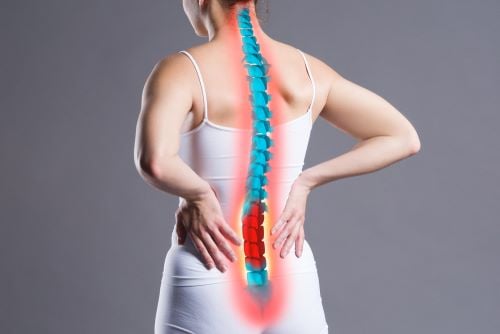- Car Accidents, Injury Treatment, Neck Injury, Physiotherapy, Whiplash
Whiplash, a common consequence of car accidents, often manifests as neck pain, stiffness, and restricted mobility. While symptoms usually subside within weeks, some individuals experience persistent issues necessitating prolonged treatment.
Physical therapy for whiplash plays a vital role in recovery after a car accident. Medical records from doctors and your physiotherapist also support your legal case for compensation.
Our physical therapists in Atlanta have extensive experience helping patients recover after car accidents. We also work with a network of personal injury attorneys.
Understanding Whiplash and Its Symptoms
Whiplash occurs due to a sudden, forceful jolting of the head back and forth, exceeding the neck’s normal range of motion. This rapid movement can strain and damage muscles, ligaments, and connective tissues in the cervical spine, leading to:
- Pain and Stiffness: Localized in the neck and upper back, radiating to the shoulders and arms.
- Headaches: Dull or throbbing, often occurring at the base of the skull.
- Dizziness and Vertigo: A sense of light-headedness, imbalance, or spinning.
- Fatigue and Malaise: General tiredness and lack of energy.
- Numbness and Tingling: Sensations often radiating down the arms and into the hands.
- Sleep Disturbances: Difficulty falling asleep and staying asleep.
- Limited Range of Motion: Difficulty turning or tilting the head due to pain and stiffness.
Physical Therapy for Whiplash
Beyond simply alleviating pain, physical therapy for whiplash builds a solid bridge toward functional recovery. This multifaceted approach addresses various aspects of the injury, tailoring treatment to each individual’s needs and progression. Here’s a deeper dive into the components of a comprehensive PT program.
Pain Management
The initial focus is often on mitigating the pain that hinders daily activities. PT utilizes a variety of methods to achieve this:
- Thermotherapy: Applying heat therapy, such as warm compresses or paraffin wax, promotes blood flow, relaxes muscles, and reduces inflammation.
- Cryotherapy: Ice packs or cold sprays temporarily numb the pain and decrease inflammation, particularly in the acute phase of the injury.
- Ultrasound Therapy: Deep heat generated by ultrasound waves reaches deeper tissues, promoting healing and pain relief.
Manual Therapy
Skilled hands play a crucial role in restoring mobility and reducing stiffness. Gentle and targeted techniques employed by the PT include:
- Mobilization: Gentle movements of the neck joints improve flexibility and range of motion, breaking up adhesions and scar tissue.
- Massage: Specific massage techniques targeting neck and upper back muscles release tension, improve circulation, and alleviate pain.
- Stretching: Stretching exercises for affected muscles and ligaments gradually increase flexibility and range of motion, preventing further tightness and discomfort.
Strengthening Exercises
Building strength in the neck and upper back muscles is crucial for long-term stability and pain prevention. The PT will design a personalized program of exercises focusing on:
- Flexion and Extension: Exercises strengthening the muscles responsible for bending and straightening the neck improve posture and head control.
- Rotation: Specific exercises strengthen muscles allowing for safe and comfortable turning of the head.
- Shoulder Stabilization: Strengthening the muscles surrounding the shoulder blades improves posture and supports neck movement.
Aerobic Conditioning
While initially limited by pain and stiffness, gradually incorporating cardiovascular activities like walking, swimming, or stationary biking is essential for:
- Improving Overall Fitness: Regaining endurance and preventing fatigue, supporting faster recovery and return to daily activities.
- Pain Management: Regular exercise releases endorphins, natural pain relievers, and improves blood flow, aiding in pain reduction.
Strengthening Your Car Accident Claim
Georgia law allows individuals to seek compensation for damages caused by another party’s negligence. In whiplash cases, demonstrating the severity and ongoing impact of the injury becomes crucial to securing fair compensation.
Physical therapy records and other medical documentation help support your claim.
- Medical Records as Evidence: Detailed PT records serve as evidence showing the extent of your injury and the necessary treatment.
- Need for Ongoing Care: If you need ongoing PT treatment, records and testimony from a physical therapist can help demonstrate this is necessary.
- Proving Reasonable Medical Expenses: Georgia law allows you to claim current and future medical expenses in a car accident claim. Physical therapy records play a key role in documenting your treatment costs.
Navigating Georgia’s Statute of Limitations
O.C.G.A. § 9-3-33 establishes a two-year statute of limitations for filing personal injury lawsuits in Georgia. This means you have two years from the date of your accident to initiate legal action. Seeking PT early and maintaining detailed records ensures you have the necessary documentation to support your claim within the legal timeframe.
Choosing the Right Physical Therapist in Atlanta
Selecting a qualified and experienced physical therapist is crucial. Look for a therapist who meets the following criteria:
- Licensed to practice PT in Georgia.
- Extensive experience treating car accident injuries
- Ability to document treatments effectively
- Clear communication with you and your legal team
- Empathy and a commitment to patient care
If you have been injured in a car accident, our injury center in Atlanta is here to help you get the treatment and legal help you need. Contact Hurt911 Injury Centers at 404-687-9000, we are available 24/7.









